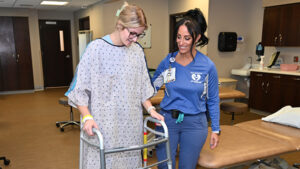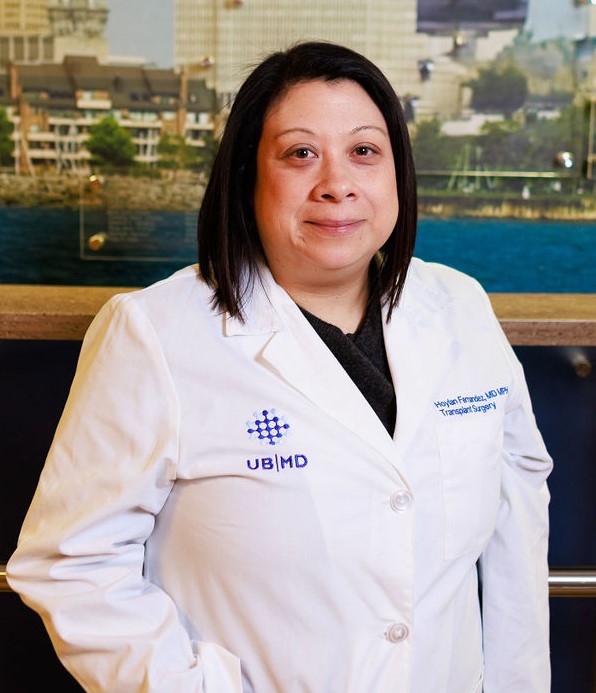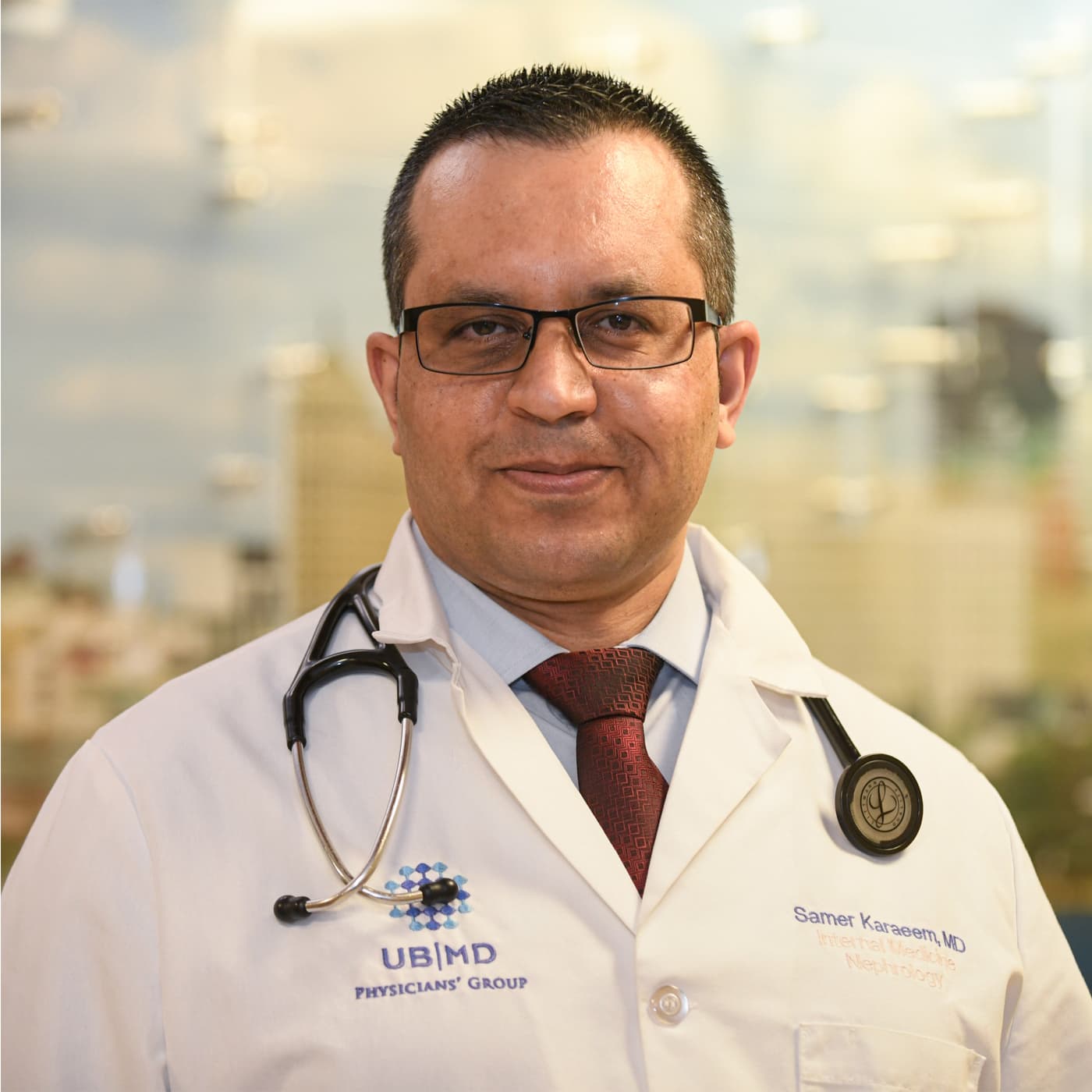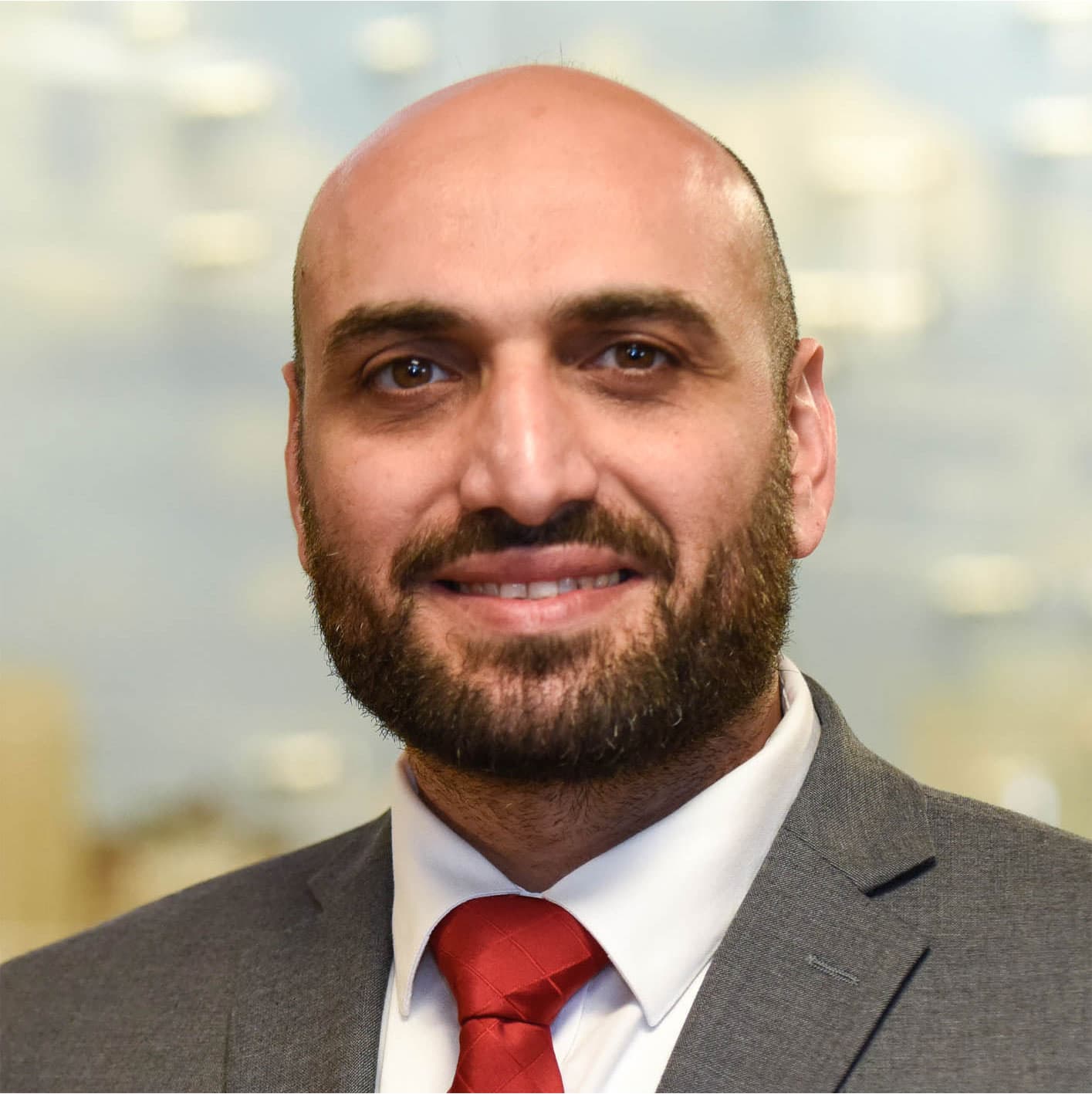Kidney Transplants
What is Kidney Transplantation?
Kidney transplantation is a surgery where you receive a kidney donated from someone else. The kidney transplant can work like your natural kidney used to, so it is the best option for most people. A functioning kidney transplant offers more independence, better energy levels, the ability to eat and drink normally, and a longer life than dialysis.
Where Do Kidneys Come From?
A donated kidney may come from 2 types of people:
- Someone who has passed away. We refer to this person as a deceased donor. About 70% of all kidneys available for transplant come from people who have died and whose families give permission for their organs to be donated to patients waiting on the transplant list. There are not enough of these organs for everyone who needs them. Therefore, the wait for a kidney from a deceased donor is generally 2-3 years. Kidneys from deceased donors typically last between 8 to 12 years.
- Someone who is living. We call this a living donor. A living kidney donor is a living person who volunteers to donate one of their kidneys. Living kidney donors can be blood relatives, spouses, friends, or even a stranger who wants to help. The wait for a kidney from a living donor can be very short—we can actually evaluate the donor and schedule the transplant within a few months. The best kidneys come from living donors. A living donor kidney lasts between 12 and 20 years.
There are several benefits to having a living donor:
- The transplant can occur sooner. There is no need to wait on the list.
- The transplant can be scheduled electively at a convenient time.
- The transplant can happen before you need dialysis.
- Kidneys from living donors usually start working immediately.
- The kidney is often healthier and lasts twice as long as kidney from deceased donors.
- All of these benefits mean that the recipient can live a longer, fuller life.
How Do I Get a Transplant
The first step to getting a transplant is to visit a transplant center. You can call the transplant center yourself to make an appointment, or you can ask a medical professional to refer you.
First, we will invite you to an educational meeting where a nurse will discuss the transplant process and answer any questions you may have. It’s important to bring a family member or friend to the educational meeting to listen and take notes. Having someone help you is necessary to get a transplant and is essential for the success of the organ after transplantation.
After education, you spend a day at the transplant center meeting the transplant team and having some simple tests done.
During the evaluation, the doctor will decide if you are eligible for a kidney transplant, pancreas transplant, or both a kidney and pancreas transplant and discuss the options with you. People who get kidney transplants are on dialysis or have a glomerular filtration rate (GFR) of < 20. People who get pancreas transplants have type I diabetes. If you have both kidney failure and type I diabetes, you may be eligible for a kidney and pancreas transplant.
Suggestions Before You Visit the Transplant Center
To help move your evaluation along, we suggest you make sure you are current with your routine testing. You can ask your primary care physician to assist with scheduling these for you. Below are some tests that you will need:
- If you are a woman and at least 21 years: Pap-smear
- If you are woman and over 50 years: Mammogram
- If you are a woman or man and over 50 years: Colonoscopy
- We also recommend that you have a dental exam.
What Happens at the Transplant Center on Evaluation Day?
We will identify any health conditions that may need attention to reduce the risk of complications and determine if a transplant is safe for you.
Registration: Register at the transplant center waiting room located on the 10th floor of ECMC. We provide free Wi-Fi (connect as ECMC Guest) and there are multiple areas to plug in. Arrive 15 minutes before your appointment. Bring the following with you: 1) photo identification, insurance card, and prescription card, 2) a list of your current medications or all your pill bottles, 3) any questions you may have, and 4) a snack in case you get hungry.
Pre-Transplant Coordinator: A nurse or nurse practitioner will be assigned to you. They will take a full history, do a complete exam, and discuss different types of transplants. Your coordinator is your main point of contact.
Nephrologist: A kidney doctor called a nephrologist will evaluate you to make sure all your organ systems are strong enough for a successful transplant and will answer any medical questions you have.
Transplant Surgeon: A surgeon will evaluate you for surgical aspects of transplantation and will answer any questions you might have about surgery.
Social Worker: A social worker will conduct a pre-transplant assessment and provide education, support, and counseling about transplantation. Areas discussed include patient responsibilities, coping needs, medication, pharmacy issues, financial considerations, support resources, and referral to community agencies.
Financial Coordinator: The financial coordinator will help you understand your insurance, co-pays, and financial responsibilities, and will make recommendations to minimize your costs.
Dietitian: The dietitian will recommend healthy eating choices and guide you through any necessary changes you may need to make regarding your weight.
Before you go home, we will give you a letter about any other tests that need to be completed in the next few months. We can make the appointments for you.
Depending on your age and health, these are some tests that might be needed:
- An echocardiogram
- A stress test
- Cardiac catheterization
- Pulmonary (lung) function tests
- CT scan of the lungs (lung-cancer screening)
- Colonoscopy to screen for colon cancer
- Dental exam to check for cavities or infection
Once your medical evaluation is complete, the results will be reviewed by the transplant team and final insurance authorization will be obtained for the waiting list. You will be notified by letter when you are added to the waiting list.
How Do You Know When You Are on the List?
When all of your testing is completed, the transplant team will meet to review your results. You will receive a phone call and a letter from us regarding the transplant team’s decision. Below are the possible outcomes:
Outcome 1 (Eligible): You are eligible to receive a transplant. You will be placed on the United Network for Organ Sharing (UNOS) list for a deceased donor. You remain on the list and wait for an organ offer. If you have a living donor, the transplant can be electively scheduled when you and your donor are ready.
Outcome 2 (Not Eligible): You are not eligible to receive a transplant. This is often because we determined that transplant may not be beneficial to you. However, there is always an opportunity to get a second opinion at a different transplant center.
Active and Inactive Status on the Waitlist
If your evaluation is complete and the transplant team has decided that you are eligible for a kidney transplant, then you will be placed on the waiting list in “Active Status.” Active status means you could receive a kidney at any time.
While you are waiting for a kidney, your health may change or your earlier transplant tests may expire. In this case, you may need to be temporarily placed on a medical hold. We call this “Inactive Status.” While on hold, you will continue to accrue time on the waitlist but will not be called for organ offers.
It is important to quickly resolve your health issues and work with us to become active again on the waitlist. Keeping in communication with the clinic can help move along this process.
Waiting for Your Transplant
When you are waiting for a transplant, you will be on the national list, which makes it possible to receive a kidney from anywhere in the country.
We can’t say exactly how long it will take for you to receive a transplant because we never know when donors will be available.
Your wait time begins either the date you are listed or the date you started dialysis, whichever happened first.
The current waiting time for a deceased organ is, on average, 2-3 years.
Below are some tips for waiting.
- Maintain communication with your Pre-Transplant Coordinator. Remember to inform us of any changes with your contact information, health, insurance, and newly prescribed medications. This information is also important to have ready when you are called with an organ offer.
- Following a healthy diet, exercising, and knowing your treatment plans and medication requirements are all important to keep you healthy.
- Have a monthly blood sample drawn. This is required. It is very important that the lab receive this sample so you can be eligible for organ offers.
- While you are waiting on the list, we will see you annually to ensure your health has not changed and provide any necessary recommendations.
NOTE: According to the Organ Procurement and Transplant Network (OPTN), you can be listed at more than one transplant center. This is called multiple listing. Refer to the UNOS pamphlet “Multiple Listing and Waiting Time Transfer.” However, you cannot be listed at more than one transplant center in New York State. The longest amount of time you have waited at any center is called the “primary wait time.” If you are listed at multiple centers, your waiting time at each center starts on the date that you are listed at that center. Your primary wait time may be transferred to another center, and this is called “wait time transfer.”
Getting the Call for an Organ Offer
The call for an organ transplant could come at any time, day or night. You may be at work, at a movie, shopping, or even sound asleep. The Transplant On-Call Coordinator will contact you with any organ offers. The process is explained below.
Below are some tips for waiting.
- Answer the phone or call us back soon. We have only 30 minutes to respond to an offer, and we need a response from you or we will move on to the next person on the list.
- Understand that a coordinator may call you from home so if you see “PRIVATE,” “UNKNOWN,” or “BLOCKED” come across on your caller ID, please answer the call anyway. Also, if you block “PRIVATE” OR “UNKNOWN” calls, you will need to undo this setting on your phone or the coordinator will not be able to contact you.
- The coordinator will ask you how you are feeling. Let us know if you have had any recent infections, illnesses, or blood transfusions. Because of the anti-rejection medications, you must be free from infection.
- We will give you general information about the organ offer.
- You will be instructed when to come to the hospital.
- You may be asked not to eat or drink anything in preparation for surgery.
- Do not take any medication unless specifically instructed to do so.
- If you have children or pets, make sure you have a plan of care for them while you are in the hospital.
- If you like, have a small bag with any small personal items ready to bring with you. Toiletries are provided at the hospital.
- Bring a current medication list or bring your medications with you.
- Make sure you have a way to come to the hospital. You will need a friend, relative, or someone else who can drive you here.
- When you arrive at the hospital, be ready for medical tests and possibly a long wait time for surgery.
- It is important to realize that even after you arrive at the hospital, the transplant team may determine the organ was not suitable. While this can be disappointing, remember that sometimes this cannot be determined until the last minute. The transplant team is committed to giving you the best possible outcome.
Transplant Day
If you are receiving a transplant from a deceased donor, the nurse who called you with the organ offer will tell you when to come to the hospital to undergo surgical clearance. Be ready; this can happen any time of day.
- If it is during regular clinic hours, we will have you come to the transplant clinic on the 10th floor.
- If it is during the night, you will come directly to the nursing unit on the 10th floor. The best way to enter the hospital after hours is by using the intercom at the front of the hospital entrance or through the emergency room. Explain that you were called in for a transplant.
- You will be admitted to a room and have an IV line placed and blood work done for a final crossmatch to your potential donor. If you need hemodialysis, we will provide it.
- You will have a chest x-ray and EKG (heart readings) done.
- You will be seen and examined by a surgeon and a nephrologist.
- During this time, the kidney will also undergo some quality tests. If it does not pass the tests, the transplant will be cancelled and you will be sent home. If it does not work out with this offer, you will keep your spot on the list until another organ comes up for you.
- If the kidney passes its quality tests and you are cleared for surgery, you will wait until it is time for surgery. An hour before surgery, you will go to the pre-op holding area.
Pre-op Holding Area
All recipients go to the pre-op holding area before surgery. If you are receiving a transplant from a living kidney donor, your surgery clearance will be done in the clinic two weeks before surgery so that on the morning of your scheduled surgery, you will go directly to the pre-op holding area. The nursing staff and anesthesiologist in the pre-surgical unit will prepare you for surgery.
Kidney Transplant Surgery
You will be transported to the operating room when the surgical team is ready to begin the procedure. If you are receiving a kidney from a living donor, you will be transported to the operating room shortly after the donor surgery has started.
Here’s what you can expect:
- You will be asleep for the entire procedure, as it is performed under general anesthesia.
- While you are asleep, a small, soft tube called a Foley catheter will be placed in your bladder to drain your urine.
- The kidney transplant procedure takes about 2 hours; however, this can vary from person to person.
- An incision will be made in your lower belly, either on the right or left side, and your new kidney will be positioned within your lower abdomen. Both of your existing kidneys will be left in place unless otherwise discussed prior to surgery.
- Once the new kidney has been positioned, the ureter–a small tube running between your kidney and your bladder through which urine passes–will be attached to your bladder. A stent may be placed in the ureter to ensure that it stays open.
- The incision will be closed with stitches, which will dissolve on their own, or staples, which will be removed 3 weeks later. The surgeon will decide on the best type of closure for you.
Most patients do not require additional procedures during kidney transplantation. An exception is patients with polycystic kidney disease (PKD), who require a customized treatment plan. If the native kidneys are removed during the transplant operation, this generally takes an additional two hours.
Pancreas Transplant Surgery
Most people who need a kidney and a pancreas will receive both at the same time. If you are receiving a pancreas only, the surgery is similar except the kidney will not be included in the surgery.
Here’s what you can expect:
- You will be asleep for the entire procedure, as it is performed under general anesthesia.
- While you are asleep, a small, soft tube called a Foley catheter will be placed in your bladder to drain your urine. Another small tube will be placed in your nose to drain your stomach.
- The pancreas transplant procedure takes about 2 hours and the kidney transplant procedure also takes about 2 hours; however, this can vary from person to person.
- An incision will be made in the middle of your belly down the center next to your belly button. The new kidney and pancreas will be positioned inside your abdomen. Both of your existing kidneys will be left in place unless otherwise discussed prior to surgery.
- The pancreas will be transplanted first and will be connected to your intestine. The kidney will be transplanted second, and the ureter–a small tube running between your kidney and your bladder through which urine passes–will be attached to your bladder. A stent may be placed in the ureter to ensure that it stays open.
- The incision will be closed with a combination of stitches, which will dissolve on their own, or staples, which will be removed 3 weeks later. The surgeon will decide on the best type of closure for you.
Recovery in the Hospital after Transplantation
When you wake up after surgery, you will have intravenous lines (IVs) in your neck or arm, which will help your aftercare team to ensure you get enough fluids. You will have a catheter in your bladder to drain the urine. You may notice blood in your urine, which is usually normal and a result of the surgical connection in the bladder. However, sometimes clots can form and block the catheter tube. If this happens, your nurse will need to flush it. If you have a pancreas transplant, you will also have a small tube in your nose.
We will take you to the Intensive Care Unit (ICU) for close monitoring and specialized care. Your nurse will frequently check your blood pressure, temperature, pulse, and urine output. After a day in the ICU, you will be transferred to the transplant unit for further care and monitoring for another 2-3 days.
Here’s what you can expect after surgery:
- Expect your hospital stay to average between 3-5 days if you received a kidney and 5-7 days if you received a pancreas, but it could be longer depending on your condition.
- You will receive medicine to help with pain, and you will get stool softeners since the operation and the pain medicines cause constipation.
- We ask you to take deep breaths often and use a breathing exerciser to open all areas of your lungs. A nurse will get you out of bed the day after surgery and encourage you to walk as often as possible while you are in the hospital.
- Before discharge, your pharmacist will teach you and your family about your medicines to protect your donated kidney.
- You will also meet with your nurse, social worker, and dietitian to prepare you for a healthy recovery and life after transplant.
- Before you leave, we will schedule an appointment for you to be seen in the clinic, most often 2-3 days after your discharge.
- You will need someone to drive you home and to your follow up clinic appointments for 2 weeks.
We are always available to help you with anything you may need throughout your transplant experience, both before and after surgery.
Recovery at Home after Transplantation
We will ask you to do some home monitoring every day on a health record sheet that we will give you. You will need a blood pressure cuff, thermometer, and a scale.
We will ask you to:
- Check your daily weight
- Check your temperature twice a day (A.M., P.M)
- Check your blood pressure twice a day (A.M., P.M)
- Track how much you drink and how much you urinate
- Diabetics will monitor their glucose levels four times a day.
- Pancreas recipients will monitor their glucose levels daily.
We will see you in the clinic about twice a week for approximately a month after your transplant. The visits will lessen over time. We encourage you to have someone accompany you to your appointments.
Your staples will be removed in the clinic 3 weeks after surgery.
The abdominal incision needs to heal, so you will not be able to take a bath for a month. Just shower and pat the wound dry.
You will need to stay away from anyone you know who has an active infection, including children.
If you have a ureteral stent, it will be removed 4 weeks after your transplant. For this procedure, you may be under general anesthesia. The procedure takes a short time and you will go home as soon as you are fully awake after the procedure.
We encourage you to walk as much as you can, but don’t lift anything over 10 lbs. for about 2 months. Below are the activity restrictions during your recovery:
- No pushing or pulling for 2 months
- Light housework only
- No yard work for 2 months
- You may resume sexual activity when you feel you are physically able.
Safe Lifestyle after Transplantation
Keeping your organs safe means continuing your usual medical care, taking precautions important for transplant recipients, and living a healthy lifestyle.
Medical care:
All transplant patients need to have a primary care doctor and must pay close attention to routine health maintenance, including:
- Screening mammograms (for women) over 50 years
- Colonoscopy for patients over 50 years
- Skin cancer screenings
If you do not have a primary care doctor, we can help you find one.
Transplant precautions:
Because your immune system is suppressed by the anti-rejection medicines, there are some precautions to take to avoid complications.
- Avoid people who have measles, mumps, chicken pox, shingles, colds, and the flu.
- Avoid closed areas with crowds during the first 3 months after transplant.
- Avoid exposure to direct sunlight. Sunscreen (SPF 30) should always be applied before any sun exposure. Wear a hat while in the sunlight.
- Wear gloves when working in soil or cleaning a litter box.
- Return to work as soon as you receive medical clearance (usually within 2 to 3 months).
- Tell your dentist that you are a transplant recipient. Generally, you will not be required to take an antibiotic prior to dental procedures. However, if you have had a prosthetic heart valve, history of infective endocarditis, or a heart transplant, they may prescribe an antibiotic.
If you develop any of the following danger signs, notify us immediately:
- Fever temperature above 100°F
- Weight gain over 5 pounds in 24 hours
- Vomiting and/or diarrhea
- Shortness of breath
- Blood in stool or urine
- Burning upon urination
- Cloudy or foul-smelling urine
- Redness, drainage or swelling from surgical site
- Decreased urine output
- Once healed, any pain or tenderness over transplant area
Post-Transplant Surgery Medication and Diet
After transplantation, it is common for patients to go home on 8-12 different medications. Each patient’s situation is unique and requires a specific, personalized combination of medications and dosages. Below is an explanation of the types of medications you will need.
Anti-rejection Medications: After any organ transplant, recipients will take 2 or 3 medications every day for as long as they have the transplant. These medicines are called anti-rejection medications because they lower your immune system to prevent rejection. It is essential to take the correct dosage of each medicine as prescribed. We will carefully follow the anti-rejection drug levels in your blood and make changes when necessary.
Antibiotic Medications: You will also need 2-3 different antibiotics for a short period of time after the transplant. We will let you know when they can be stopped.
Other Medications: After organ transplantation, you may need to take other medications to treat high blood pressure, diabetes, or other conditions.
Remember the following to keep your transplant healthy:
- Do not skip a dose of your medications. If you miss a dose, call the clinic immediately, and we will tell you how to proceed. Use medication alarms to remind you when it is time to take your medications.
- Do not double up on your medication.
- Do not change a dose of medication on your own.
- Do NOT take medications that have been prescribed by other doctors without checking with us first.
- Call us immediately if you have any issues getting your medicines from the pharmacy. Some medications interfere with your anti-rejection medicine, so the pharmacy may be exercising caution. However, we can help you get the prescribed medication.
- Follow the Medication Daily Schedule we give you. If you need an updated schedule, let us know.
- Call your pharmacy for a refill 1 week before you run out.
- Call us anytime (716) 898-5001.
Side Effects of Anti-Rejection Medication
The success of your kidney transplant depends on your commitment to taking your medications and following the doctor’s instructions for any changes.
Your anti-rejection medication plays a significant role in avoiding organ rejection, and adherence to your medical schedule is critical.
If you are having side effects, concerned about the cost and long-term effects, or having difficulty in getting medication, talk with the transplant doctor about your concerns. We can adjust your medications to help minimize the side effects.
If you are having difficulty paying for your medications, please talk to your transplant team. Do not try to save on medications by skipping doses.
Take all medications in the correct doses at the correct times daily.
Immunosuppressive medications will make you more susceptible to infections and at an increased risk for certain cancers. We will monitor for these complications and manage them as soon as possible.
AVOID ibuprofen (NSAID), Advil, Motrin, or Aleve. Tylenol (acetaminophen) is fine for aches and pains.
Some immunosuppressants include:
PROGRAF (FK506) – Taken twice a day. Side effects include:
- Headache
- Hand tremors
- Nausea
- Diarrhea
- High blood pressure
- Increased blood sugar and potassium
- Decreased magnesium
- Prograf can also harm your kidneys over time. The dosing of this drug is based on the amount of drug in your blood. You must take care to take doses 12 hours apart and have your blood tests done just before your morning dose.
CYCLOSPORINE – Taken twice a day. Side effects include:
- High blood pressure
- Mild hand tremors
- Headache
- Increased growth of hair
- Cyclosporine can also harm your kidneys over time. You must take care to take doses 12 hours apart and have your blood tests done just before your morning dose.
RAPAMUNE (SIROLIMUS) – Taken once a day in the morning. Side effects include:
- Ankle swelling
- Abdominal pain
- Nausea
- Diarrhea
- Constipation
- Joint aches
- Fever
- Headache
- High blood pressure
- Anemia
- High cholesterol/triglyceride levels
- Blood levels are also measured for this medication so blood tests should be done before your morning dose.
CELLCEPT – Taken two to four times a day. Side effects include:
- Diarrhea
- Nausea
- Vomiting
- Rash
- Low white blood cell count with increased risk of infection
PREDNISONE – Taken once a day and can be for short- or long-term use. Side effects for long-term use include:
- Difficulty sleeping or may feel “hyper” (should subside within a few days)
- Increased appetite
- Stomach ulcers
- Osteoporosis
- Diabetes
- Cataracts
- Mood swings Cushing’s syndrome (including round cheeks, protruding abdomen, fat deposits over the upper back, acne, and increased growth of facial and body hair)
Most patients are not on high enough doses to suffer from these side effects, and these side effects will decrease or disappear as the dose is decreased.
Taking your Medications and Following Your Treatment Plan
It is common for people to find it hard to follow complex medical advice and treatment as this involves major changes to their daily life. Your treatment is extremely important to keep your new organs functioning and improve your life. If you are experiencing difficulties with following medical treatment, we may be able to help.
Following discharge instructions, attending follow-up appointments, taking your medication, and communicating with your transplant team are all part of an agreement to follow your transplant regimen.
Post-transplant care is essential in maintaining organ function, and failure to adhere to posttransplant recommendations may lead to rejection, organ loss, or death. Patients’ failure to follow their medication regimens, specifically the anti-rejection medications as set forth by their doctors, can lead to organ rejection.
Patients often return to old habits, including substance abuse and nicotine abuse, which pose a significant risk, increasing both illness and death rates. If you are concerned and need help, please contact the transplant social worker or coordinator.
It is also important to keep your transplant appointments so we can monitor and maintain your health. If you have difficulty keeping your appointments, please contact the transplant social worker or coordinator.
Long-term Transplant Care
Clinic visit schedule: For the first month after transplant, we will see you twice a week. For the second month, you will come in once a week, and in the third month, we will see you every other week. For the next few months after that, we will see you once a month.
You will not be able to drive for the first month after your transplant, so have someone drive you to appointments.
Eventually, you will be seen once a year by our team in the clinic or another doctor for your transplant follow-up care.
You may eat prior to your clinic appointment unless you are told to fast. Diabetics may take their insulin ONLY if they have eaten.
You should come to the clinic 30 minutes prior to your scheduled time. DO NOT take your medications before your clinic visit. Bring your medications with you so you can take them after your blood work is drawn during your visit. You also need to bring your medication record and health record with you to every clinic appointment.
At these visits, we will take your vital signs, weight, and blood work. Your doctor will meet with you to review and adjust your medications and address any concerns you may have. After you have seen the doctor, we will give you any prescriptions that you need and schedule your next appointment date.
It is important to come for your blood work in the morning because we monitor drug levels for your anti-rejection medications, and the lab work should be drawn 12 hours after your evening dose of the medication.
Coping with Kidney Transplant Care
Receiving a kidney transplant is a major life event. A functioning kidney may change your life for the better, but taking care of yourself and your new kidney is not always easy. It’s normal to experience a range of emotions, such as being worried, feeling fed up and low, or feeling snappy and irritable.
Along the way there are things that people have found helpful. These include:
Support: It is difficult to manage on your own, and support from family, friends, and hospital staff is really important. Some people do not ask for help and do not want to be a burden. However, friends and family will not know what you are feeling, and they will need you to tell them how they can offer the best support.
Getting the right information: Often when we are in a negative mood, our thinking is negative too, and we tend to expect the worst. Ignoring how you feel can cause more problems in the long run. Finding accurate information from this booklet, the transplant team, and other sources can help to keep your thinking balanced.
Stress management: Stress can happen when our demands are greater than our resources to cope with them, so be aware of not taking on too much, or putting too much pressure on yourself. Also, increase your resources by taking time out to do nice things and relax.
Take control: In chronic health problems, people often feel out of control, and over time people give up and avoid things. This can affect their mood. It is important to keep a sense of being in control of your health. For example: find out information, keep records of your results, make sure you are fully involved in all the decisions about your treatment, and follow your medication instructions and schedule. Your treatment is extremely important to optimize your outcome. If you are experiencing difficulties with following medical treatment we may be able to help.
Give your body the best chance: Low mood can affect our energy levels and some people may actually rest too much. This means that your muscles will weaken. Keeping up gentle exercise can actually help with tiredness and can promote well-being. Having a healthy diet helps with well-being too.
The Transplant Team
Kidney transplant patients at ECMC, as well as their families and loved ones, are supported by a comprehensive team with extensive experience in transplants, from physicians to social workers to transplant coordinators. This team includes:
Transplant Administration
- Phyllis Murawski, Vice President of Renal Services
- Jessica Mondoux, Vice President of Transplantation and Renal Services
- Bryan Lamphron, Transplant Quality Care Coordinator
- Becca Demske, Registered Dietitian
- Emily Vizzi, Transplant Data Assistant
- Parveen Minhas, Senior Nurse Practitioner and Transplant Manager
Pre-Transplant
- Tomi Shisler, Nurse Practitioner
- Parveen Minhas, Nurse Practitioner
- Lisa Kalinka, Nurse Practitioner
- Melissa Hovak, Nurse Practitioner
- Kristine Reed, RN, Transplant Coordinator
- Virginia Leyh, RN, Transplant Coordinator
- Ebony Harwell, Program Coordinator
- Renee Schie, Transplant Assistant
- Cheri Passmore, Transplant Assistant
- Michelle Passmore, Transplant Assistant
- Taunya Clark, Transplant Social Worker
- Brittany Johnston, Transplant Social Worker
- Dree’ Davis, Transplant Social Worker
- Diana Liz-Reyes, Transplant Social Worker
- Katie Basior, Financial Coordinator
- Lauren Foley, Financial Coordinator
- Becca Demske, Registered Dietitian
- Sharon Zalemski, Registered Dietitian
- Emily Vizzi, Data Assistant
- Bryan Lamphron, Transplant Quality Care Coordinator
Living Donor Team
- Nicole Haseley, Living Donor Nurse Practitioner
- Sandra Lauer, Independent Living Donor Advocate
- Deanne Hossfeld, Transplant Assistant
Post-Transplant/ Inpatient Transplant
- Tara Przybyl, Transplant Assistant
- David Diina, Nurse Practitioner
- Elizabeth Zynda, Nurse Practitioner
- Dennis Jack, Nurse Practitioner
- Leigh-Anne DiOrio, Nurse Practitioner
- Jenna Walden, Nurse Practitioner
- Kayla Nieswiadomy, Nurse Practitioner
- Joy Duffin, Transplant Coordinator
- Stephanie Brunner, Transplant Coordinator
- Jackie Pena, LPN
- Tina Tartaglia, Transplant Assistant
- Jorge Gonzalez, Transplant Assistant
- Lina Mirabella, Transplant Assistant
Additional Info
LOCATION
Transplant Center
ECMC Main Building, 10th Floor
462 Grider Street
Buffalo, NY 14215
Outpatient Dialysis Center
Barry & Deanna Snyder Dialysis and Medical Office Building, 1st Floor
462 Grider Street
Buffalo, NY 14215
HOURS OF OPERATION
Critical Care Units
(i.e., TICU, MICU & Burn Units)
12:00 p.m. – 2:00 p.m. & 5:00 p.m. – 7:00 p.m. Two visitors at a time are permitted)
General Visiting Hours
Monday – Sunday
1:00 p.m.-7:00 p.m.
CONTACT
Toll-Free
(888) 894-9444
Transplants
(716) 898-5001
Kidney Transplant Resources
Learn More About The Process
Fastest kidney transplant in the U.S.—right here in Buffalo, NY.
Living Donor Information
Living donation is the process of transplanting a kidney from a healthy individual into a person with kidney failure. Living donors can be family members or someone patients are close to, such as a spouse or friend.












